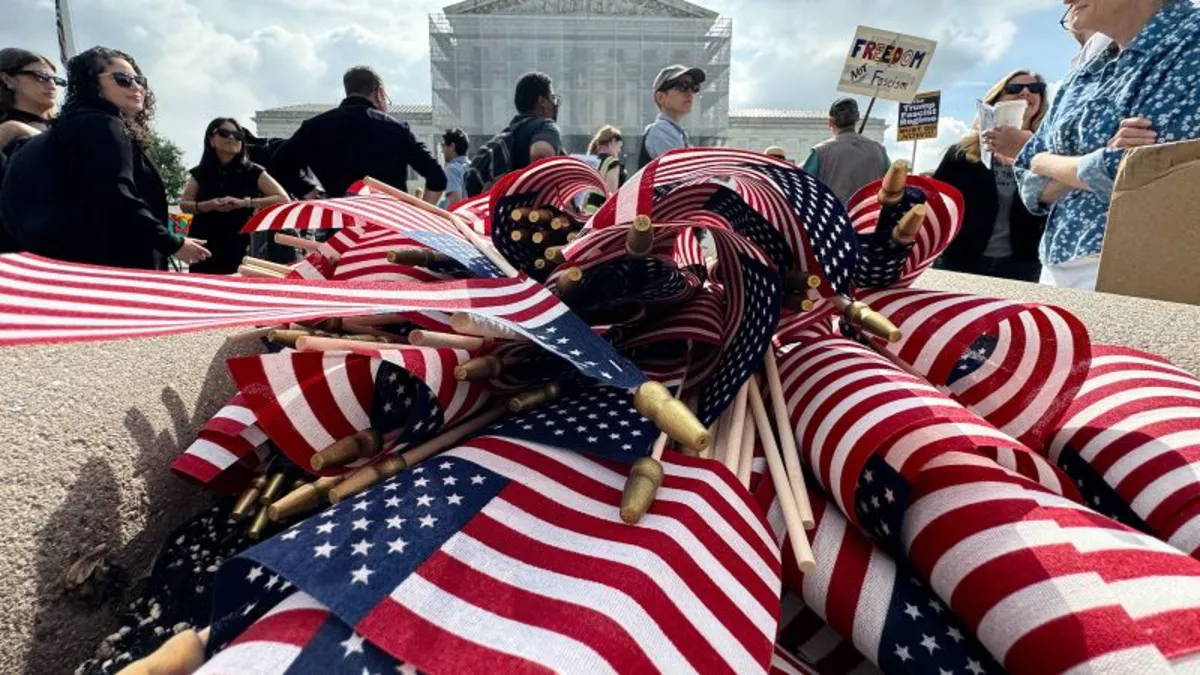
A federal judge has issued a significant ruling that imposes a nationwide block against President Donald Trump’s executive order aimed at ending birthright citizenship. This decision, made by US District Judge Joseph Laplante, comes in the wake of a recent Supreme Court ruling that limited the authority of lower court judges to issue nationwide injunctions. However, the high court maintained the ability of plaintiffs to pursue widespread blocks of executive orders through class action lawsuits, which is precisely the legal avenue taken in New Hampshire on Thursday.
During a hearing, Judge Laplante granted a request from immigration rights attorneys to certify a nationwide class that will consist solely of individuals who have been deprived of citizenship under the contentious order. The judge issued a preliminary injunction that indefinitely blocks Trump's Day One executive order from being enforced against children who would be affected by the policy, whether they are born or unborn. "The preliminary injunction is just not a close call to the court," Laplante stated, emphasizing the severe and irreparable harm that would result from depriving individuals of US citizenship. He added, "US citizenship is the greatest privilege that exists in the world."
Judge Laplante, a judicial appointee of former President George W. Bush, indicated he would pause his ruling for several days to allow the Trump administration time to appeal. This ruling could serve as a critical defense against Trump’s policy as other courts reassess their decisions in light of the Supreme Court's recent rulings. In February, Laplante had previously blocked the Trump administration from enforcing the order against members of certain nonprofit organizations impacted by it.
During the hearing, Judge Laplante expressed a shift in his stance regarding nationwide injunctions, stating, "I’m the judge who wasn’t comfortable with issuing a nationwide injunction. Class action is different." His acknowledgment of the Supreme Court's suggestion that class action lawsuits are a more appropriate legal mechanism aligns with the current judicial landscape.
In a prior ruling, Judge Laplante argued that Trump’s executive order contradicts the Fourteenth Amendment and long-standing legal precedents. Various judges across the country have reached similar conclusions, deeming the executive order unconstitutional. This prompted the Trump administration to file a series of appeals, ultimately leading to the Supreme Court's involvement.
The arguments presented on Thursday primarily revolved around the request from immigration rights attorneys to certify a class that includes "all current and future children" who would be affected by Trump’s order. However, the judge’s ruling did not encompass the parents of these children. Laplante appeared to consider arguments from the Justice Department, which contended that including parents could complicate class certification due to varied immigration statuses among the adults involved.
The legal representatives highlighted that if Trump's executive order remains in effect, affected children would face numerous challenges in the United States. These challenges include stigma, potential statelessness, the loss of voting rights, ineligibility for federal programs, and risks of arrest or deportation.
Signed by Trump on January 20, the executive order titled "PROTECTING THE MEANING AND VALUE OF AMERICAN CITIZENSHIP" aims to prevent the federal government from recognizing US citizenship for children born on American soil to parents who are unlawfully present or temporarily in the country. Following the Supreme Court's ruling on June 27, the administration was barred from enforcing the order for 30 days, although they are permitted to begin drafting implementation guidelines.
In response to the Supreme Court's ruling, lower courts across the nation have requested written legal arguments to determine how this decision may affect existing nationwide injunctions against Trump’s executive order. As additional court proceedings are anticipated in the coming weeks, the timeline for resolving these legal challenges remains uncertain. Judge Laplante humorously remarked during the hearing, "I feel like we’re the only people who rushed around here," reflecting the urgency of the matter at hand.
This ruling and its implications will continue to unfold, highlighting the ongoing legal battles surrounding immigration policy and citizenship rights in the United States.